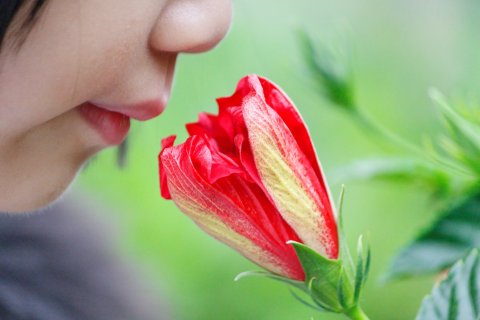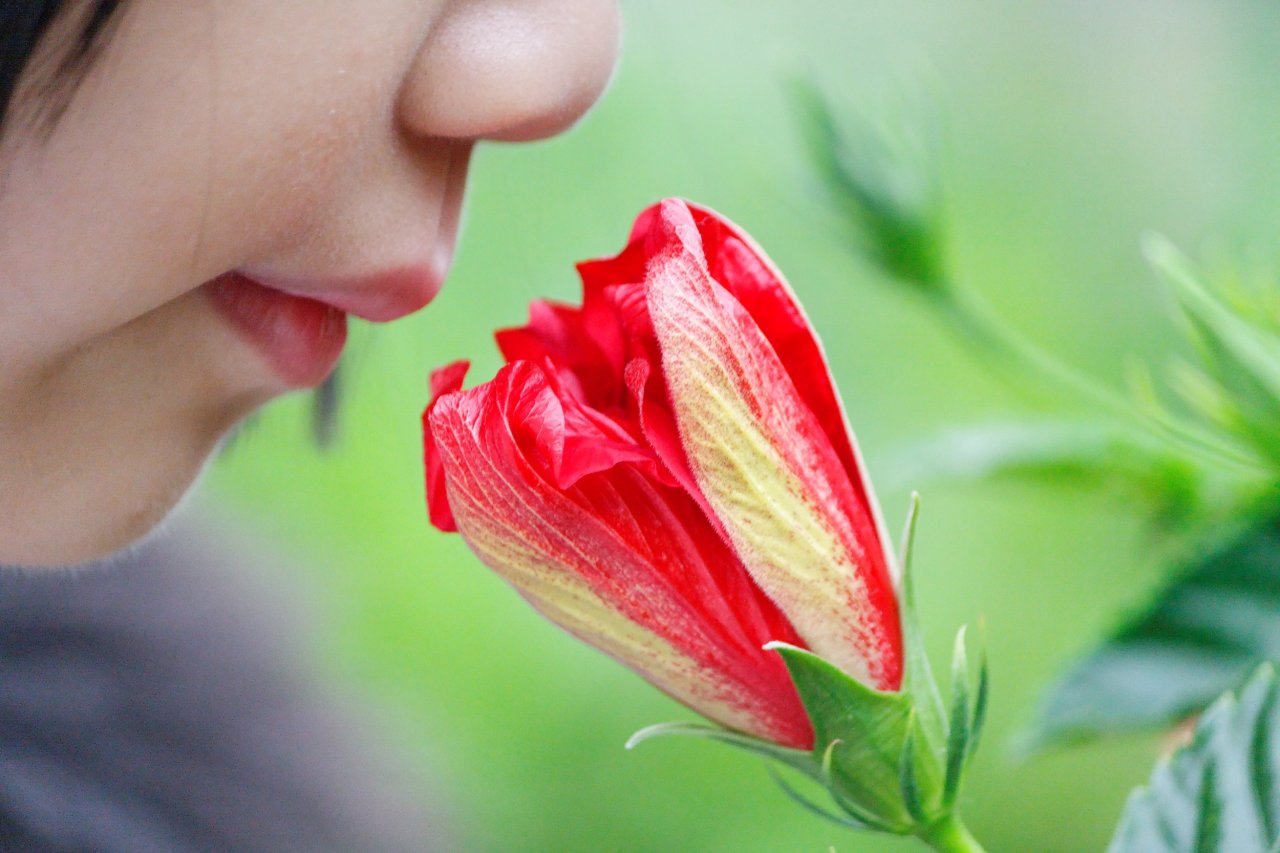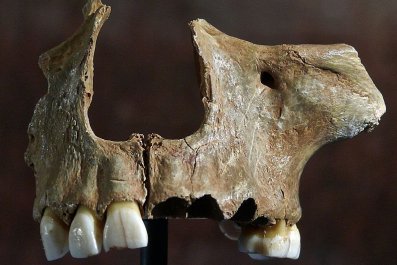An extraordinary human superpower has long been hidden in plain sight, a secret weapon as easy to spot as the nose on your face… because it is the nose on your face. Contrary to popular belief, humans have an excellent sense of smell. And the story behind why we ever thought differently is an incredible illustration of how facts can be buried by bias.
In a newly published paper in Science, neuroscientist John McGann, who studies sensory perception at Rutgers University, explains that religious politics of 19th century France spurred the misconception that humans have a poor sense of smell. The Catholic Church objected to what it deemed the teaching of atheism and materialism, particularly that offered by an anatomist named Paul Broca, whose work focused on the brain.
The criticism, writes McGann, worried Broca, who needed to find evidence to support his view that the mysteries of life could be reduced to simple scientific facts. For example, McGann explains that Broca did not think the human soul existed separate from the human body. Based on his observations that humans have larger frontal lobes—the portion of the brain behind our forehead—than other mammals and that damage to this region could impair speech and cognition, Broca concluded that this mass must be where the soul resided. That conclusion went against the beliefs embraced by strong and powerful religious leaders at the time.
Disguising the Odor
Enter our sense of smell. In humans, the olfactory bulb—the portion of the brain that registers odors—appears smaller than that of some other animals. But, explains McGann, that difference is just the result of the bulb's location. In rodents, the olfactory bulb is relatively bigger and sits right at the front of the brain. Human olfactory bulbs are smaller, squashed flat and tucked under the frontal lobe. Broca inferred that the smaller size meant a less powerful olfactory system.
He then leapt to the conclusion that the human sense of smell was diminished in exchange for its powerful intellect. "It is no longer the sense of smell that guides the animal: it's intelligence guided by all the senses," Broca wrote in 1879. He believed free will stemmed from the frontal lobe and that the physical space required for this development meant the olfactory bulb had to shrink. This explanation provided Broca with the scientific justification he needed for views that the Church, powerful both culturally and politically, did not support.
Related: Emerging science charts our olfactory heritage

McGann explains that making this case had some other repercussions. The shrunken human olfactory bulb and the observation that humans weren't as preoccupied with odors as, say, rodents led Broca and others—through what McGann describes as, "a chain of misunderstandings and exaggerations"—to conclude that humans have a poor sense of smell.
That mistake had widespread impact. McGann cites the example of Sigmund Freud, who theorized that our loss of smell led to sexual repression. Further, said Freud, a person who was particularly delighted by smell probably had a mental disorder. All of this, McGann explains, was tied to the view that a better sense of smell was somehow anathema to our distinguished role as humans in the world of animals. To err may be human, but to smell was beneath us.
Richard Doty, who directs the Smell and Taste Center, part of the Perelman School of Medicine at the University of Pennsylvania, says Charles Darwin also dismissed the power of our olfactory system. In 1871, in a pronouncement infused with dated and erroneous assertions about race, Darwin called smell "of extremely slight service, if any, even to savages, in whom it is generally more developed than in the civilized races."
Reawakening the Sense
McGann transforms that view. First, it turns out the human olfactory bulb has about the same number of neurons as that of species traditionally thought to have a strong sense of smell. In fact, human males have more olfactory neurons than mice, hamsters and guinea pigs. Human females have somewhat fewer neurons but still beat out rats. And it's the neurons that matter when it comes to detecting and responding to odors.
It is true that human smell differs from that of other species. In particular, humans can only smell odors that waft through the air. Other species do not have this limitation. "Dogs can smell odors that stay in liquid form," says McGann. "That's why they put their nose on things." And while we can detect all manner of odors, we can't identify the individual chemicals creating them. "Coffee is about 150 chemical compounds," says McGann. "But you don't smell 150 things, you smell coffee." Unlike our sense of hearing, which can isolate the flute in an orchestra, our sense of smell does not zero in that way, he explains.
Still, McGann emphasizes that our sense of smell is much better than we usually acknowledge. The human olfactory system can identify an odor from just an atom or two of a fragrant chemical. One recent study estimated that humans can detect more than 1 trillion distinct compounds. "It's widely, and incorrectly, believed that humans are primarily visual," says Leslie Vosshall, who studies sensory perception at Rockefeller University, "that we lost our olfactory prowess when we became a bipedal species with our noses far from the ground." This paper, says Vosshall, "shows convincingly that the human sense of smell is incredibly powerful."
The influence that odors have on us also hint at the importance of this sense. Fragrances wafting through our noses and reaching our olfactory bulbs can change thoughts and feelings in an instant. We respond to one another's "body odor cocktail," as McGann puts it, and decide whether or not a person, place or thing is safe or dangerous in part based on smell. According to one recent study, we unconsciously smell our palms after shaking hands with strangers.
Trailing the Scent
The myth that humans have a poor sense of smell has had consequences. About 1 to 2 percent of people in the U.S. suffer from an olfactory disorder, including complete loss of the sense or smell hallucinations. Chemotherapy can also diminish or alter smell as a side effect. The change, which can be permanent, leaves many patients depressed and can also pose nutrition problems because taste is closely tied to fragrance. A change in olfactory abilities can also indicate an underlying neurodegenerative disease. But research to understand why these conditions occur and how to treat them has been slow to progress in part because of how smell has been minimized by this history. No remedies exist for these conditions."Because for 100 years we've had this idea that our sense of smell is an afterthought," says McGann, "loss of smell as a medical problem has gotten the short shrift."
Related: New study hints at close ties between the brain and the gut
Doty cautions against overestimating the proficiency of the human olfactory system. "This system is overlooked and taken for granted," he acknowledges, "however, anyone who has owned a dog knows that humans clearly do not have the same capabilities." Doty points out that humans don't rely on this sense in the same way as many other mammals and are able to survive without it. The same is not true for many other species: a hamster's odor, for example, is a priority for mating.
McGann is continuing to study smell, in particular how our olfactory system changes as our brains accrue information about odors. He often recommends to his students that they blindfold themselves and crawl around in the backyard as a way to begin understanding the power of their olfactory system, an experience he found revelatory. "Partially I never paid attention," he says, "and partially I never put my nose where the good stuff was."

















